QuestionI just acquired a colt approx 3 months of age. He is very thin, hair is falling out and has multiple open wounds that at this point do not appear to be infected. The horse was among a rather large herd and bitten frequently by some of the other horses. Also has ticks embedded to underbelly and legs. Most wounds appear to be superficial. Very sad case don't really know if he will make it. He still seems to have a lot of spunk. He will eat grain out of hand. So far today we gave him a good bath and tried to brush his hair out and cut out the mats. We then applied betadine to all wounds and we have stalled him. We gave him a dose of Zimecterin and will continue this for 7 days even though stool looks to be well formed with no visible worms noted. I have never tried to nurse a horse before, we have sheep and have had goats but thats about it. I was wanting to give him a broad spectrum antibiotic, what I have on hand is Duramycin 72-200, can I use this on him and if so what would be the recommended dose. Also his diet is of serious concern to me. Please advise.
Thank you for your help.
AnswerHi Chris,
Thank you for your question and my commendations on your efforts. I'll do what I can to help you out.
First, I have a few suggestions for the wound dressing. Betadine scrub is great for cleaning wounds as it combines the disinfecting capabilities of iodine with a surfactant (soap) that helps dissolve the serum that has oozed from the wound. But you must be sure to rinse the betadine from the wounds once you are done otherwise that surfactant will prevent the formation of new cells and slows down the healing process. As a dressing once the wounds are cleaned, dress them with nitrofuracin if the wound is deep or hibitaine if the wound is shallow. You can use a blue-kote type spray if the wound is purely superficial and not an an area that needs to flex. I'm not a fan of administering antibiotics unless truly necessary so unless he has an infection I would suggest holding off...check for fever in case of doubt. Antibiotics can really disrupt the microflora of the hindgut, even though they are injected and not ingested...and your horse already has enough digestive challenges. You'll also want to address the tick issue for lime disease especially if it is prevalent in your area.
Secondly, and most importantly, you're going to need to get him back into condition and keep him growing. Most people want to start with a lot of grain hoping the energy density in it will do the trick. But the truth is that a malnourished (or starved) horse's digestive system slows down in trying to save itself and so you need to take a slow approach to prevent digestive disaster. You're on the right track to deworm...but keep in mind that it has the same negative effect on the digestive system as antibiotics so my suggestion is to use them only as necessary. I would suggest that you start with the best possible forage that you have available as this is the basis of your horse's diet...and this ensures that every bite full contributes to weight gain. If you can find even a few bales of second cut quality alfalfa start by feeding them and then scale back to first cut or grass hay once the foal is back on track. Provide that forage free choice no matter what form it comes in. To further help this I would suggest you buy some yeast to add to the diet...either live yeast or yeast culture. This is not to suggest that you don't feed grain, in fact you are going to want to feed some just at the correct rate. I would prefer if you found a complete feed designed for growing horses and follow the suggested feeding rates. What you may need to do differently than other horses in that age group is split the feedings of grain into more meals a day...to account for the challenged digestive system. So, feed the amount suggested but over 4 or 5 feedings a day (even if this means feeding during the night). Split the total yeast culture fed daily amongst the grain feedings. You may find that he is slow to eat grain at first but that will come in due time, when he is capable of doing so.
I bought a foal this age in much the same condition and with a lot of persistence, attention to detail and patience he made it just fine. Take it slow, you have lots of time.
Thanks, Corlena

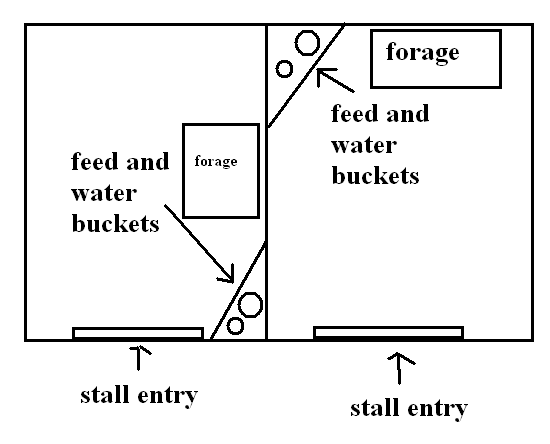 position for feed box, water bucket in the stall
Question
position for feed box,
hello, where should the
position for feed box, water bucket in the stall
Question
position for feed box,
hello, where should the
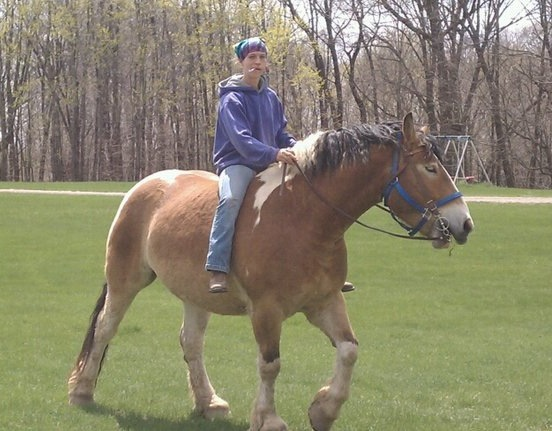 My new draft horse.....
Question
Bubbs Gentle Giant
I have just pu
My new draft horse.....
Question
Bubbs Gentle Giant
I have just pu
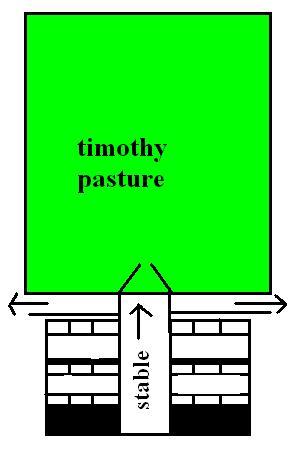 stables inside my pasture
Question
stables inside my past
hello maam, can i set l
stables inside my pasture
Question
stables inside my past
hello maam, can i set l
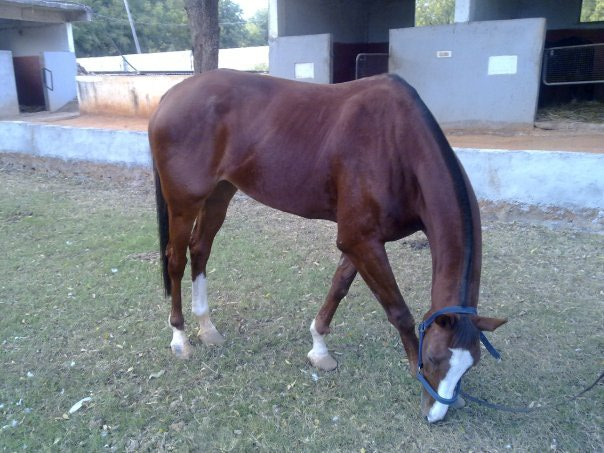 horse lacking muscle
Question
horse lacking muscle
hello maam, can i
horse lacking muscle
Question
horse lacking muscle
hello maam, can i
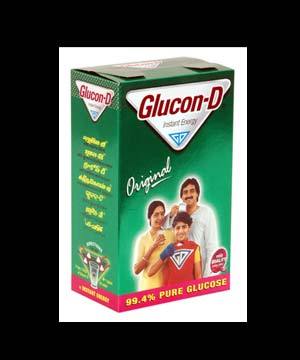 adding rehydrating supplement in the water bucket
Question
glucod D
hello maam, here in india, cl
adding rehydrating supplement in the water bucket
Question
glucod D
hello maam, here in india, cl